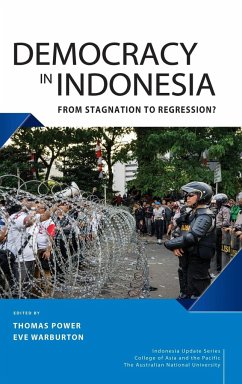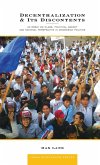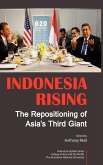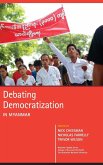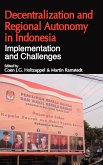The majority of contributions to this volume, with the exception of those by Marcus Mietzner, Ross Tapsell and Thomas Power, were developed out of papers presented at the 37th annual Indonesia Update conference, held at the Australian National University (ANU), Canberra, on 6-7 September 2019. At each of the annual ANU Indonesia Updates since 2014, authors of the political update papers expressed growing concern about the downhill trajectory of Indonesia's democracy. The 2019 Update took stock of this trend by posing a question: had Indonesian democracy shifted from a state of stagnation, as proposed at the same venue five years previously, to one of regression ? The excellent array of papers presented by the contributors to this book revealed an overwhelming, and profoundly troubling, answer. We wish to express our thanks to each of the authors represented in this volume for being part of this endeavour. Not only did the contributors travel to Canberra to share their expert analyses, but in the months that followed they gave much of their time to our editorial process. The result is, we believe, an important and comprehensive evaluation of Indonesia's democratic decline at the outset of President Joko Widodo's second term. Indonesia has long been hailed as a rare case of democratic transition and persistence in an era of global democratic setbacks. But as the country enters its third decade of democracy, such laudatory assessments have become increasingly untenable. The stagnation that characterized Susilo Bambang Yudhoyono's second presidential term has given way to a more far-reaching pattern of democratic regression under his successor, Joko Widodo. This volume is the first comprehensive study of Indonesia's contemporary democratic decline. Its contributors identify, explain and debate the signs of regression, including arbitrary state crackdowns on freedom of speech and organization, the rise of vigilantism, deepening political polarization, populist mobilization, the dysfunction of key democratic institutions, and the erosion of checks and balances on executive power. They ask why Indonesia, until recently considered a beacon of democratic exceptionalism, increasingly conforms to the global pattern of democracy in retreat.
Hinweis: Dieser Artikel kann nur an eine deutsche Lieferadresse ausgeliefert werden.
Hinweis: Dieser Artikel kann nur an eine deutsche Lieferadresse ausgeliefert werden.

